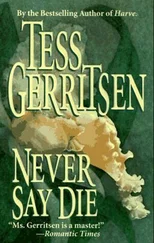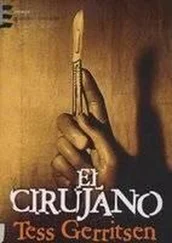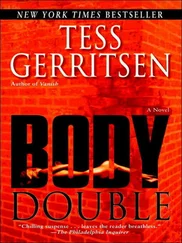“… and now Dr. Welliver and Mr. Roman are fighting about whether students should learn to hunt. Mr. Roman said yes, because it’s an ancient skill, but Dr. Welliver says it’s barbaric. Then Mr. Roman pointed out that Dr. Welliver eats meat, so that qualifies her as a barbarian, too. Boy, did that get her mad!”
As Maura unpacked jeans and hiking boots, hung up blouses and a dress in the wardrobe, Julian chattered about his classmates and teachers, about the catapult they’d built in Ms. Saul’s class, about their wilderness trip when a black bear had sauntered into their camp.
“And I’ll bet you were the one who chased that bear away,” she said with a smile.
“No, Mr. Roman scared him off. No bear wants to tangle with him .”
“Then he must be a seriously scary man.”
“He’s the forester. You’ll meet him at dinner tonight. If he shows up.”
“Doesn’t he have to eat?”
“He’s avoiding Dr. Welliver, because of the argument I told you about.”
Maura closed the dresser drawer. “And who’s this Dr. Welliver, who hates hunting so much?”
“She’s our psychologist. I see her every other Thursday.”
She turned and frowned at him. “Why?”
“Because I have issues. Like everyone here.”
“What issues are you talking about?”
He looked at her in puzzlement. “I thought you knew. That’s the reason I’m here, the reason all the students were chosen for Evensong. Because we’re different from regular kids.”
She thought of the class she’d just visited, the two dozen students gathered around Poison Pasky’s demonstration table. They’d seemed like any other cross section of American teenagers.
“What, exactly, is different about you?” she asked.
“The way I lost my mom. It’s the same thing that makes all the kids here different.”
“The other students have lost parents as well?”
“Some of them. Or they’ve lost sisters or brothers. Dr. Welliver helps us deal with the anger. The nightmares. And Evensong teaches us how to fight back.”
She thought of how Julian’s mother had died. Thought of how violent crime ripples through families, through neighborhoods, through generations. Evensong teaches us how to fight back .
“When you say the other kids have lost their parents or sisters or brothers,” said Maura. “Do you mean …”
“Murder,” said Julian. “That’s what we all have in common.”
EIGHT

THERE WAS A NEW FACE IN THE DINING HALL TONIGHT.
For weeks Julian had been talking about this visitor Dr. Isles, and about her work in the Boston medical examiner’s office cutting up dead people. He’d never mentioned that she was also beautiful. Dark-haired and slender, with a quietly intense gaze, she looked so much like Julian that they could almost be mother and son. And Dr. Isles looked at Julian the way a mother would look at her own child, with obvious pride, attentive to every word he said.
No one will ever look at me that way again, thought Claire Ward.
Seated at her usual solitary spot in the corner, Claire kept her eye on Dr. Isles, noting how elegantly the woman used a knife and fork to cut her meat. From this table, Claire could see everything that went on in the dining hall. She did not mind sitting alone; it meant she didn’t have to engage in pointless conversations and could keep an eye on what everyone else was doing. And this corner was the only place she felt comfortable, with her back to the wall, where no one could creep up behind her.
Tonight on the menu were consommé, a salad of baby lettuces, beef Wellington with roasted potatoes and asparagus, and a lemon tart for dessert. It meant juggling an array of forks and spoons and cutlery, something that had confused Claire when she first arrived at Evensong a month ago. In Bob and Barbara Buckley’s house in Ithaca, dinners had been far simpler, involving only a knife, a fork, and a paper towel or two.
There’d never been any beef Wellington.
She missed Bob and Barbara far more than she’d ever imagined she would. Missed them almost as much as she missed her parents, whose deaths two years ago had left her with distressingly foggy memories that were fading fast day by day. But the deaths of Bob and Barbara were still raw, still painful, because it was all her fault. If she hadn’t sneaked out of the house that night, if Bob and Barbara hadn’t been forced to go searching for her, they might still be alive.
Now they’re dead. And I’m eating a lemon tart .
She set down her fork and stared past the other students, who mostly ignored her, just as she ignored them. Once again she focused on the table where Julian sat with Dr. Isles. The lady who sliced dead people. Usually Claire avoided looking at adults, because they made her uneasy and they asked too many questions. Especially Dr. Anna Welliver, the school shrink, with whom Claire spent every Wednesday afternoon. Dr. Welliver was nice enough, a big and frizzy-haired grandma type, but she always asked the same questions. Did Claire still have trouble sleeping? What did she remember about her parents? Were the nightmares any better? As if talking about it, thinking about it, would make the nightmares go away.
And all of us here have nightmares .
When she looked around the dining hall at her classmates, Claire saw what a casual observer would probably miss. How Lester Grimmett kept glancing at the door, to assure himself that there was an open escape route. That Arthur Toombs’s arms were rippled with ugly burn scars. That Bruno Chinn frantically shoveled food into his mouth, so that his phantom abductor wouldn’t snatch it away from him. All of us have been marked, she thought, but some of our scars are more apparent than others.
She touched her own. It was hidden beneath her long blond hair, a ridge of scar tissue that marked the spot where the surgeons had sliced her scalp and sawed open her skull to remove blood and bullet fragments. No one else could see the damage, but she never forgot it was there.
Lying awake later that night, Claire was still rubbing that scar, and she wondered what her brain looked like beneath it. Did brains have scars as well, like this knotted ridge of skin? One of the doctors—she didn’t remember his name, there’d been so many in that London hospital—told her that children’s brains recovered better than adults’ did, that she was lucky to be only eleven years old when she was shot. Lucky was the word he’d actually used, stupid doctor. He’d been mostly right about her recovery. She could walk and talk like everyone else. But her grades now sucked because she had trouble concentrating on anything for more than ten minutes, and she too quickly lost her temper in ways that scared her, ways that left her ashamed. While she didn’t look damaged, she knew she was. And that damage was the reason she was now lying wide awake at midnight. As usual.
There was no point wasting her time in bed.
She rose and turned on the light. Her three roommates had gone home for the summer, so she had the room to herself and could come and go without anyone ratting her out. In seconds she was dressed and slipping out into the hall.
That’s when she spotted the nasty note taped to her door: Dain Bramaged!
It was the bitch Briana again, she thought. Briana, who whispered retard whenever Claire passed by, who’d laughed hysterically in class when Claire tripped over some strategically placed foot. Claire had retaliated by sneaking a handful of slimy earthworms into Briana’s bed. Oh, the shrieks had been worth it!
Читать дальше












